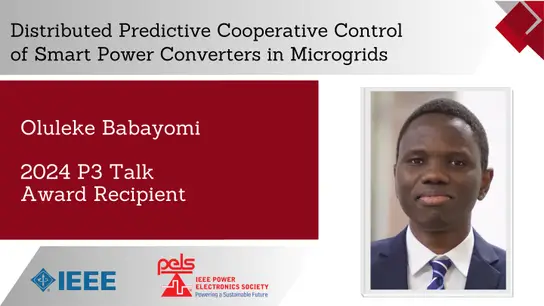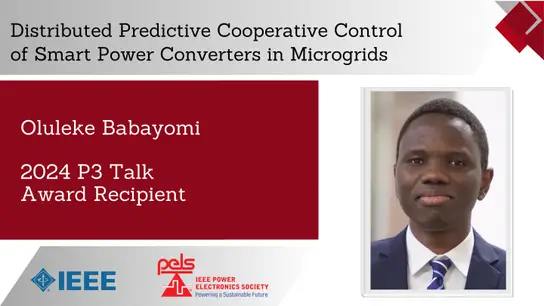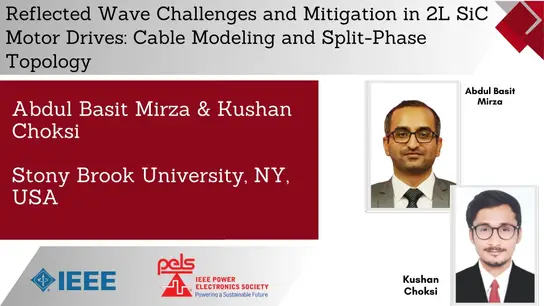Predictive Control of Power Electronics - Basic Principles and Possible Achievements-Slides
Ralph Kennel
-
Members: FreePELS
IEEE Members: $8.00
Non-members: $12.00Pages/Slides: 113
Abstract: Model Predictive Control (MPC) is a conceptually simple yet powerful methodology to control power converters, electric drives, and large systems, such as electrical power grids. MPC provides many advantages in comparison to traditional controllers including the capability to intuitively handle a large variety of control problems by considering different modes of operation and directly incorporating system constraints and additional requirements. Furthermore there is no need to linearize the models, whatever is known from the system to be controlled, can be used for the model, even tables. The underlying concepts are intuitive, the resulting controllers are inherently stable and, once calculated, easy to implement. Research works have demonstrated that it is possible to use Predictive Control to control electrical energy with the use of power converters, without using modulators and linear controllers. This keynote will introduce the basic principles of MPC, and it is going to point out in which areas further progress of MPC is necessary. Meanwhile, the circumstances under which MPC is superior to conventional (linear) control and the possibilities for the future of MPC will also be discussed.


